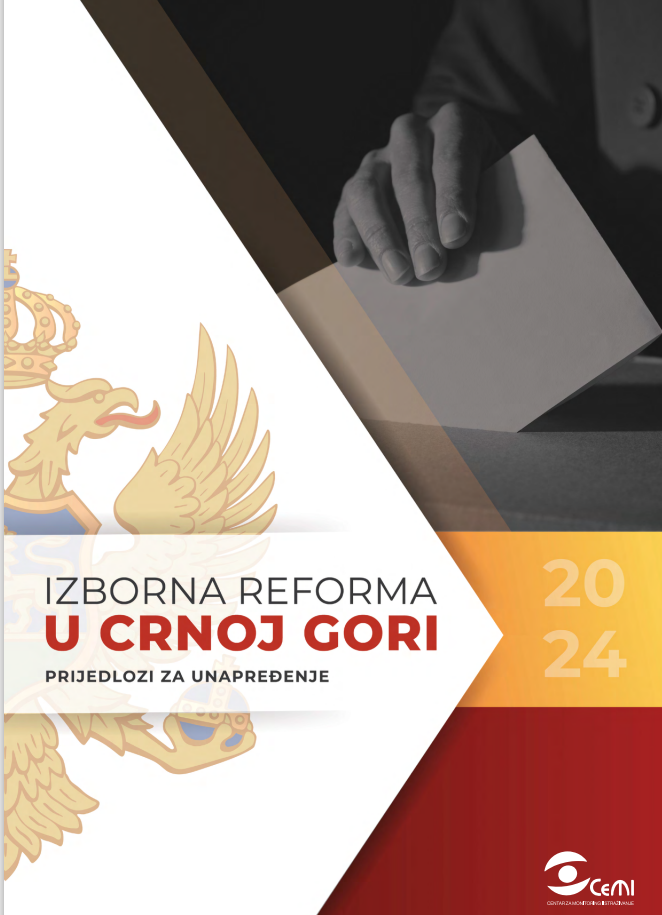The study presented before the reader is based on the previous experience and findings of our organization, which have been built through numerous conducted monitoring activities of electoral processes in Montenegro, as well as in other countries, with a special emphasis on the period of 2016-2023. The findings and recommendations are based on the previous reports published by our organization, but also represent an extension of some of them.
We owe special thanks to the British Embassy Podgorica, which not only supported the publication of this study but also the entire project, which included support for monitoring the presidential and parliamentary elections in 2023.
Since its establishment, CeMI has consistently pointed out the need for and called for reform of the electoral framework. Unfortunately, changes to the electoral framework have occurred in a non-transparent manner as part of political negotiations conditioned by some then-current political crisis and were insufficient to meet real needs.
In its latest reports, the OSCE ODIHR has repeatedly emphasized the key recommendation for Montenegro to undertake a comprehensive and inclusive reform of the electoral framework. The same request was made by two Montenegrin traditional election monitoring organizations (CeMI and CDT).
The current composition of the parliament has formed a working group (March 2024) which includes 5 representatives of non-governmental organizations and the academic community, including a representative of CeMI. The selection of these representatives represents progress compared to the decisions of the previous parliament.
The announced electoral reform presents an opportunity for our society to respond to the demands of the EU and take a step closer to concluding negotiations on Montenegro's EU membership and addressing concerns about the implementation of the electoral process.
CeMI advocates for the reform to include a change in the electoral system. On the one hand, voters should be allowed to vote for individual candidates, not just party lists, thereby enhancing the accountability and quality of work of MPs in the Montenegrin Parliament.
On the other hand, it is necessary to address the issue of the selection of candidates for parliamentary positions, which should be done democratically, as well as the democratic election of party leadership.
When it comes to the electoral system, electoral reform should strengthen the role of voters in selecting MPs and party members in selecting candidates for MPs, or making decisions within parties.
At CeMI, we believe that this study makes a significant contribution to the ongoing electoral reform process.
The structure of the study follows the structure of CeMI's election monitoring reports, which our organization publishes after conducting monitoring activities. The recommendations at the end of the study follow the organization of the study.
